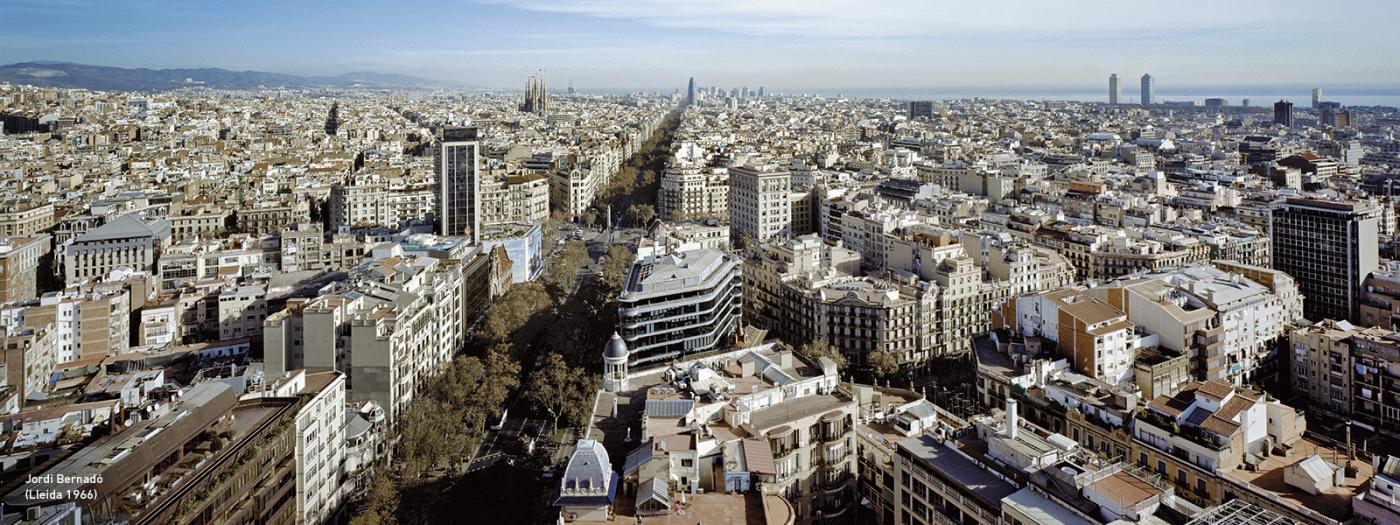Architectural design is a field with a rich past and with an exciting future. While solidly rooted in a strong disciplinary framework, architectural design Is continuously evolving to meet new societal requirements. The last decades have seen major and rapid changes in the ways we understand, relate with and transform our physical environment. New global challenges, such as climate emergency, social inequality, global culture and pandemics, affect architecture's objectives, methods, processes and results. MIAD embraces these changing conditions and explores the potentials arising from them with a critical yet affirmative position and an engaged attitude towards our shared environment.
The Transversal Workshop is the final subject of the Master's programme, and it serves as an exploratory ground to test and contest the tools and visions learned throughout the five logics that make up the programme. Its main purpose Is to help students to find their personal voice as architects, integrating environmental, social, digital, tectonic and cultural logics within architectural design.
Hold a Bachelor in Architecture or in Building Engineering.
The subject's main aims are:
- Prompt identity building and a personal attitude towards contemporary architectural design.
- Articulate and integrate instrumental tools, design methodologies and thematic approaches from the five MIAD logics (environmental, social, digital, tectonic and cultural).
- Nurture a wide range of professional possibilities of the architect of today: designer, builder, thinker, manager, activist, inventor, curator, specialist
The workshop will have a very clear start (a given urban situation, namely 3X) and finish (printed + digital presentation in A2 panels), but the design's development will be decided by each student addressing the given questions by explicitly integrating the five design logics learned throughout the Master's.
Start: Student's will be given a specific urban situation in the metropolitan area of Barcelona of special relevance for the city's future development. An urban situation entails a physical site and a cultural framework, potentially including pre-existing urban studies and/or architectural preliminary schemes, which students will be asked to address in a critical way.
Development: Each individual student will develop their design taking two main questions into account:
- Identity: Build personal attitude towards what can a contemporary architect do.
- Integration: Articulate the 5 design logics learned and tested throughout the year.
That means that the specific object of design (e.g., a building, a plan, a temporary intervention, an activist project, a collaborative initiative, a communication project and so on), the design process followed (e.g., mapping, diagramming, sketching, modelling, calculating, writing and so on), and the design results achieved (e.g., strategic planning, plans and sections, axonometrics, perspectives, multi-media, maps, scores, performances, manifestoes, critical texts, content curatorship, communication, technical developments, construction details, policy proposals and so on) will be consciously chosen by each student team in order to further their interests and expand on what can an architect do in the 21st century.
In order to help students in their design process, the workshop will propose weekly interim deliverables of a specific type of documentation (see detailed schedule for details). These documents can be adapted individually if previously agreed by both student and professors.
End: Based on the abovementioned weekly interim deliverables, each student will distil all their work in a formatted set of printed + digital panels. Quality will be valued over quantity, and all effort will be made so each student's workshop's deliverables are publication-ready.
The course may consist of nine main kinds of activities:
A. Introduction: to assignments and workshop organisation
B. Presentation: student's work presentation (either WIP or formal Midterm/Final)
C. Lesson: taught by faculty member
D. Lecture: given by invited guest
E. Consultancy: given by faculty member or invited guest on specific practical issues
F. Discussion: class-wide (students + faculty)
G. Review: desk crit or group review
H. Off-campus: site visits, exhibitions or off-campus events
I. Jury: Faculty + Guests
Students are requested to submit all the material on the MIAD Gdrive within a maximum of 1 week after the course.
System MIAD for grading exercises:
0 - 4.9 Fail (this means that the tutor will have to ask the student to submit a supplementary work).
5.0 - 6.9 Pass.
7.0 - 8.9 Good.
9.0 - 10 Excellent/Distinction.
On this basis, students will be evaluated on several aspects such as:
Attendance - 10 %
Assignments - 60 %
Final presentation - 40 %
On Barcelona and Metro Area
- https://www.amb.cat/ca/web/guest/homehttps://agenciaeconomica.amb.cat/
- BUSQUETS, Joan. Barcelona: The Urban Evolution of a Compact City. Cambridge: Harvard University Graduate School of Design, 2005.
- GALERA, Montserrat, ROCA, Francesc and Salvador TARRAGÓ. Atlas de Barcelona. Barcelona: Col·legi Oficial dArquitectes de Catalunya, 1982.
- CROSAS, Carles, ed.. Atles Metropolis: Contemporary Maps. Barcelona: Àrea Metropolitana de Barcelona, 2015 (Catalan/Spanish/English).
https://www.metropolis.org/sites/default/files/media_root/publications/c...
- WIKIPEDIA
https://ca.wikipedia.org/wiki/Central_t%C3%A8rmica_de_Sant_Adri%C3%A0_de...https://3xemeneies.wordpress.com/https://docomomoiberico.com/en/buildings/central-termica-de-san-adrian/
https://cultura.gencat.cat/ca/catalunyamediacity/inici/https://3xemeneies.wordpress.com/documentacio/treballs-i-propostes/https://drive.google.com/file/d/1-F5PS4WyNcLC4SrWYOvZMfPFnZKQkMi-/view
https://drive.google.com/file/d/1R5o6jjljF5ykGSs8q63dkyixxakBMCoz/view
https://drive.google.com/file/d/1bsCotZx50QaVHvWJaPJHC7Rw6dVnb5t6/viewhttps://consorcibesos.cat/wp-content/uploads/2019/06/ConclusionesCat-2.pdfhttps://consorcibesos.cat/oficina-receptora-i-avaluadora-de-projectes-i-...
